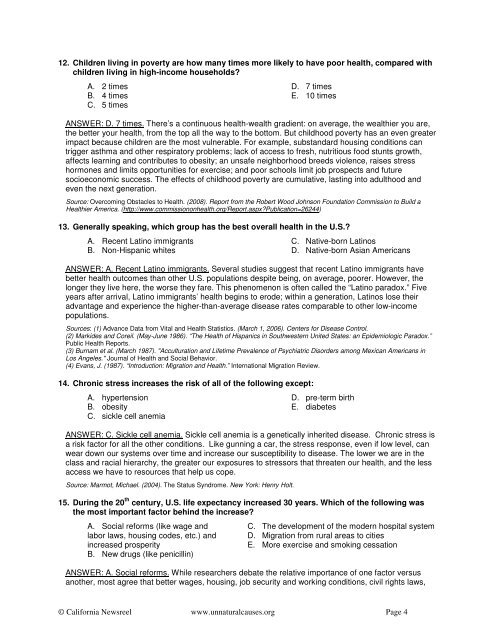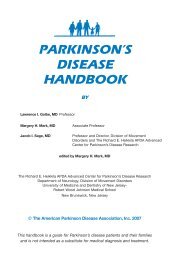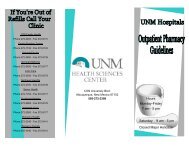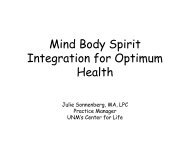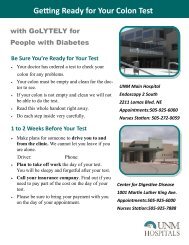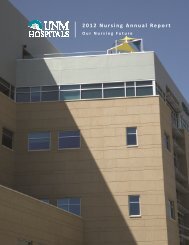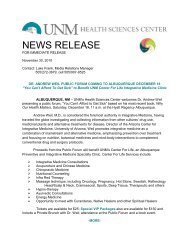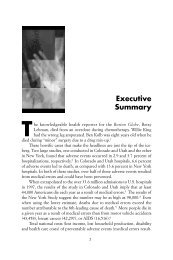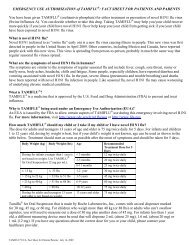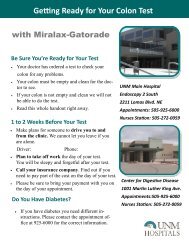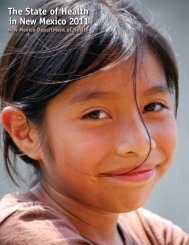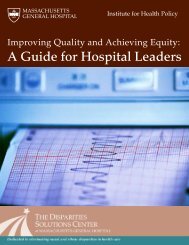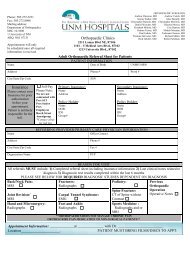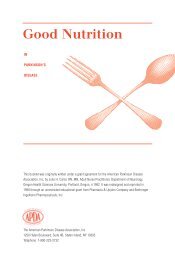Health Equity Quiz (pdf) - Unnatural Causes
Health Equity Quiz (pdf) - Unnatural Causes
Health Equity Quiz (pdf) - Unnatural Causes
Create successful ePaper yourself
Turn your PDF publications into a flip-book with our unique Google optimized e-Paper software.
12. Children living in poverty are how many times more likely to have poor health, compared withchildren living in high-income households?A. 2 timesB. 4 timesC. 5 timesD. 7 timesE. 10 timesANSWER: D. 7 times. There’s a continuous health-wealth gradient: on average, the wealthier you are,the better your health, from the top all the way to the bottom. But childhood poverty has an even greaterimpact because children are the most vulnerable. For example, substandard housing conditions cantrigger asthma and other respiratory problems; lack of access to fresh, nutritious food stunts growth,affects learning and contributes to obesity; an unsafe neighborhood breeds violence, raises stresshormones and limits opportunities for exercise; and poor schools limit job prospects and futuresocioeconomic success. The effects of childhood poverty are cumulative, lasting into adulthood andeven the next generation.Source: Overcoming Obstacles to <strong>Health</strong>. (2008). Report from the Robert Wood Johnson Foundation Commission to Build a<strong>Health</strong>ier America. (http://www.commissiononhealth.org/Report.aspx?Publication=26244)13. Generally speaking, which group has the best overall health in the U.S.?A. Recent Latino immigrantsB. Non-Hispanic whitesC. Native-born LatinosD. Native-born Asian AmericansANSWER: A. Recent Latino immigrants. Several studies suggest that recent Latino immigrants havebetter health outcomes than other U.S. populations despite being, on average, poorer. However, thelonger they live here, the worse they fare. This phenomenon is often called the “Latino paradox.” Fiveyears after arrival, Latino immigrants’ health begins to erode; within a generation, Latinos lose theiradvantage and experience the higher-than-average disease rates comparable to other low-incomepopulations.Sources: (1) Advance Data from Vital and <strong>Health</strong> Statistics. (March 1, 2006). Centers for Disease Control.(2) Markides and Coreil. (May-June 1986). “The <strong>Health</strong> of Hispanics in Southwestern United States: an Epidemiologic Paradox.”Public <strong>Health</strong> Reports.(3) Burnam et al. (March 1987). "Acculturation and Lifetime Prevalence of Psychiatric Disorders among Mexican Americans inLos Angeles." Journal of <strong>Health</strong> and Social Behavior.(4) Evans, J. (1987). “Introduction: Migration and <strong>Health</strong>.” International Migration Review.14. Chronic stress increases the risk of all of the following except:A. hypertensionB. obesityC. sickle cell anemiaD. pre-term birthE. diabetesANSWER: C. Sickle cell anemia. Sickle cell anemia is a genetically inherited disease. Chronic stress isa risk factor for all the other conditions. Like gunning a car, the stress response, even if low level, canwear down our systems over time and increase our susceptibility to disease. The lower we are in theclass and racial hierarchy, the greater our exposures to stressors that threaten our health, and the lessaccess we have to resources that help us cope.Source: Marmot, Michael. (2004). The Status Syndrome. New York: Henry Holt.15. During the 20 th century, U.S. life expectancy increased 30 years. Which of the following wasthe most important factor behind the increase?A. Social reforms (like wage andlabor laws, housing codes, etc.) andincreased prosperityB. New drugs (like penicillin)C. The development of the modern hospital systemD. Migration from rural areas to citiesE. More exercise and smoking cessationANSWER: A. Social reforms. While researchers debate the relative importance of one factor versusanother, most agree that better wages, housing, job security and working conditions, civil rights laws,© California Newsreel www.unnaturalcauses.org Page 4


